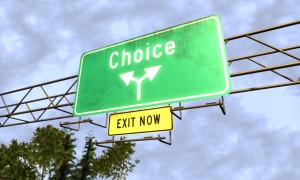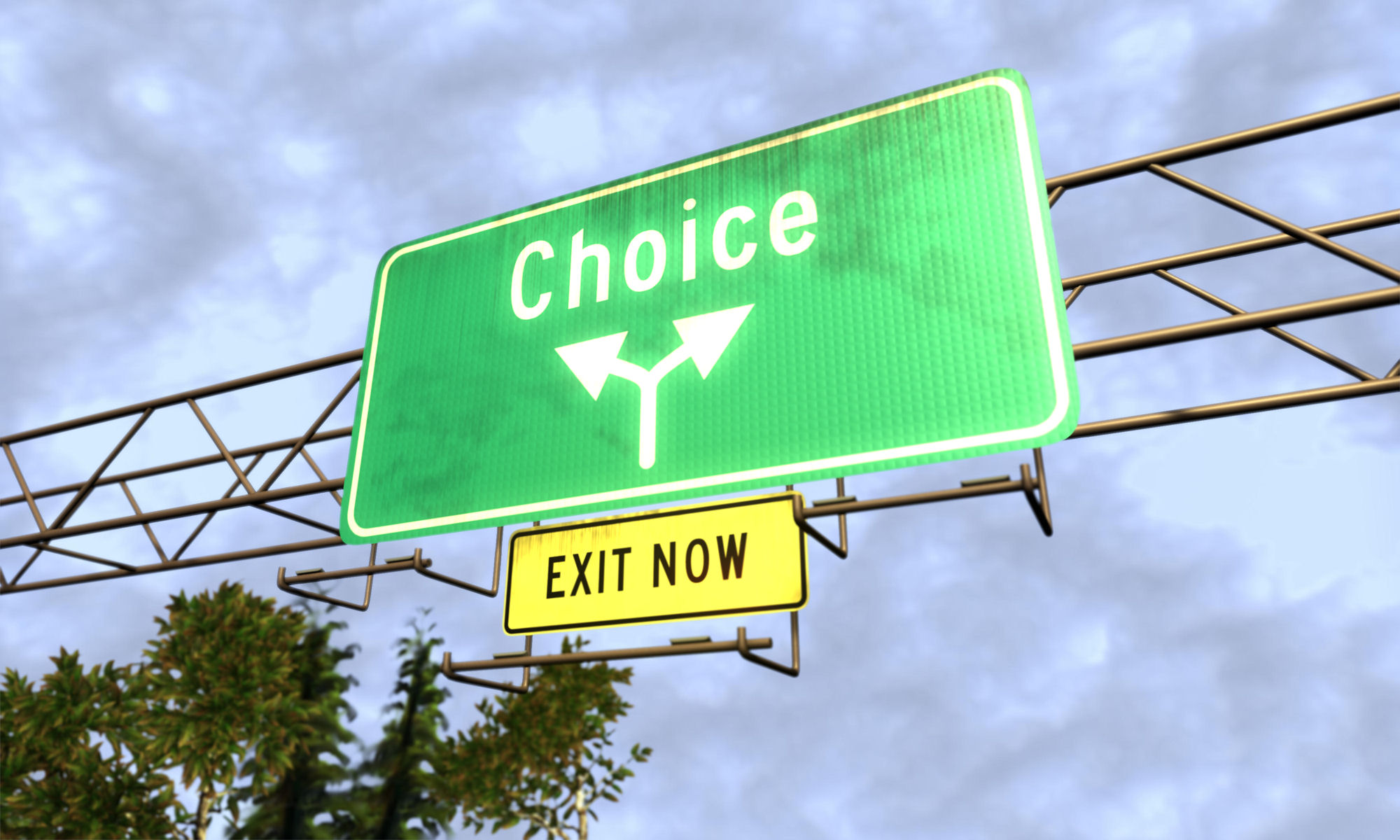I’ve been working on a very in depth and direct description of a Choice Model of Addiction which stands on its own without reference to the disease model, and it’s still not finished, but I can’t wait till then to post up some sort of description. The Stinkin Thinkin blog highlighted a particularly dishonest article about addiction which purported to be busting myths, but simply went on to present more of the same. Within it, was this gem of a quote:
Some say addicts can stop any time. They represent the choice model, and I tend to think of them as flat-Earthers. In the other corner, you have the disease model, subscribed to by a vast armada of addiction experts, neurobiologists, addicts and, increasingly, laymen.
read the original article or the stinkin-thinkin blog post
First off, when there is such a large “armada” of addiction experts screaming that it’s a disease, and by many estimates 90% of the public buys this idea hook line and sinker, why does this guy need to bust myths? Why do they all need to keep shouting it at this point? I know that if 90% of people were on my side in this debate, then I’d probably stop fighting it at that point. These diseasers can’t stop though, because it’s all they have. They don’t have a solution, or they’d have moved on to explaining exactly how that works by now.
Second of all – Flat earther? Wow. It’s this kind of talk which really shows the need for a straightforward description of the Choice Model. I’ll try to give a brief picture of it.
In my view, a Choice Model of Addiction says that addiction is like any other complex life situation.
For example, let’s consider “being in a dead end job” (A stifling and unfavorable career with no future for advancement – which we’ll abbreviate as DEJ). A DEJ is not a disease, it’s a situation that people get themselves into, and sustain through, their choices. You may start in a DEJ for any multitude of reasons: it seems like something you’d like, it’s an easy opportunity, maybe it’s the only opportunity you know of, maybe your family is in the business and you mindlessly followed their footsteps giving little consideration to your other options, maybe you’re unwilling to look elsewhere, and maybe you’ve made an error in judgment and this career just doesn’t have the future you once thought it did.
 The DEJ can wreak all sorts of havoc on your life. It may keep you poor and leave you penniless for retirement. It may be an unenjoyable drudgery which you dread heading out to every day. Maybe it takes up too much of your time. Maybe the level you’re at is dangerous work, and it actually puts you at risk of physical harm. DEJ’s are no picnic, and can lead to plenty of other problems in life. The DEJ may demand too much attention, and it can affect your mood so that when you’re not even there it still negatively effects the other facets of your life. Ultimately, you can waste a lot of time in a DEJ, and kick yourself later for it.
The DEJ can wreak all sorts of havoc on your life. It may keep you poor and leave you penniless for retirement. It may be an unenjoyable drudgery which you dread heading out to every day. Maybe it takes up too much of your time. Maybe the level you’re at is dangerous work, and it actually puts you at risk of physical harm. DEJ’s are no picnic, and can lead to plenty of other problems in life. The DEJ may demand too much attention, and it can affect your mood so that when you’re not even there it still negatively effects the other facets of your life. Ultimately, you can waste a lot of time in a DEJ, and kick yourself later for it.
There are any number of reasons people may stay in such DEJ’s. Maybe they never give any thought to whether the career has a future or is a dead end. Perhaps their life circumstances reinforce staying in the job – for example, all of their friends work there and they want to stay involved for social reasons. Maybe there are no other opportunities in the area, and they don’t want to move. Then there is the fact that they may not have prepared for a better job – they’ve got learning to do, or they’re afraid to start at the bottom somewhere else. Maybe they’re just afraid of change – heading out to that same job everyday has some level of comfort because it’s a routine, and changing the routine would take work, and involves the potential for failure. Worst of all, maybe friends and family, or the general perception that some people are incapable of having good careers, have convinced them that they are doomed to DEJ’s.
Now, this analogy may not be perfect, but I hope it gets the point across. I see addiction as being no different than such life circumstances as a DEJ. You get into addiction by your own choices, that much is even conceded by the recovery culture. The reason you stay in addiction is not because you’ve crossed a point of no return into a disease state; you stay because it’s a complex life situation. It’s something that becomes routine and easy to repeat. You may not take the time to honestly weigh it’s value or to compare it to alternatives. There’s a comfort in doing the same thing again and again – it’s reliable – unlike the unknown path to change. Sometimes, our options are limited, and we’d have to work hard to find other options. Maybe your social circle has become full of other substance users, and that provides you with reason to keep things as usual, and finding new friends or not fitting in is scary. And so on, and so on. The point is, that our choices about addiction are effected by the same factors, and the same types of thinking that keep us stuck in any unfavorable and complex life situation.
Breaking away from a dead end job means that you have to find a new job, you may have to educate yourself and learn new skills, you may have to adjust to different hours, you may even have to move to a different environment, and you will find your circle of associates changes over time. Likewise, breaking away from a lifestyle of addiction may mean that you have to learn new skills like dealing with stress and anxiety differently, you’ll have to find new ways to spend your free time, and you may even have to find a new way to get to sleep at night! Breaking away from the DEJ may be easier for some people because they have skills in their past and a network to which they can return to – and it may be harder for others because it’s the only job they’ve ever had. Some may have more opportunities readily available to them, and others may need to create those opportunities – the same goes for breaking away from addiction. To mystify it into a disease, and to take the focus way from these realities can only hamper people. Imagine going to a career counselor who told you that you were genetically doomed to be stuck in your dead end job for the rest of your life, and that you could only learn to cope better with the job. If that’s so absurd, why do we let people tell us such things about other complex life situations?
It would be nice if addiction were a simple disease that we could cure with a pill or surgical procedure – but like being stuck in a dead end job, it isn’t such a disease, and there is no such miracle cure. It’s a complex life situation which will take bold personal choices to effectively and permanently change.
Keep in mind, this isn’t a full description of a Choice Model Of Addiction, but simply a discussion of one premise: that addiction is like any other complex life situation, and therefore subject to our personal choices.

This is a beautiful analogy! Like the DEJ, addiction results from a lack of knowledge and lack of courage to change, a desire to just remain in the comfort zone. Sometimes it just seems easier to just keep doing the same thing over and over.
And yeah, I chose to drive to all those doctors. I chose to steal money out of our savings account. I chose to take those pills. No disease made me do it. I knew every pill I took was bad for me, but I didn’t care. I pushed those thoughts out of my mind. I wanted my lover, my pill, for so many reasons. Most drug addicts, when pressed, will admit to me that their drug or their booze was their lover too. Unless of course some old-timer in the program has convinved them they are powerless.
OH WOW. YOU HIT THE NAIL ON THE HEAD. Kelly SOME people don’t want a better life, and they are so far gone they want to drag everyone else into their black hole of despair and denial. I went to a bunch of NON 12 step meetings this month and powerlessness and lack of motivation in those rooms was scary due to the large proportion of COURT ORDERED losers and users are just taking up space while conjuring up ways to get around their restrictions. A high percentage of those just mentioned have SERIOUS mental health issues underlying their “addictions”. The world is not getting better, it’s getting sicker and sicker. I don’t need to revisit my past and be grateful for what i have. these groups have serious potential for hooking up with the WRONG people who will try to exploit anyone financially and sexually. BEWARE! Join RATIONAL RECOVERY and do it on your own. ITS THE ONLY WAY THAT REALLY WORKS ANYWAY. peace, Zig